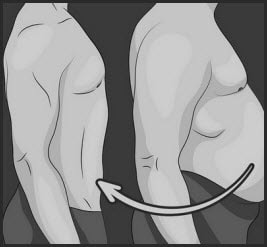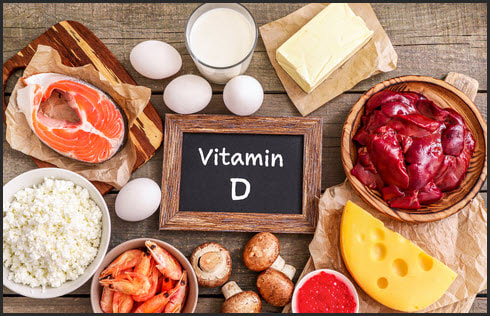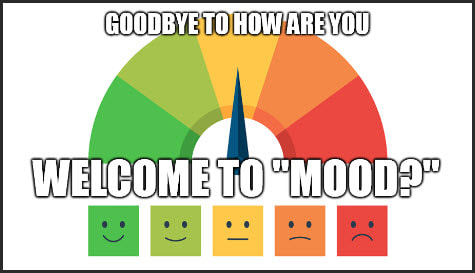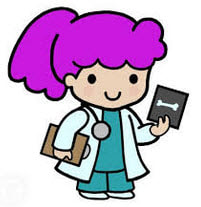|
Taking a sunbath can be a relaxing and beneficial activity when done safely. Here are some tips that Pharmalime.net will give you to ensure you enjoy the sun while protecting your health:
1. Use Sunscreen - **Choose a broad-spectrum sunscreen** with an SPF of at least 30 to protect against both UVA and UVB rays. - **Apply generously** to all exposed skin about 15-30 minutes before going outside. - **Reapply every 2 hours** and immediately after swimming, sweating, or towel drying. 2. Avoid Peak Sun Hours - **Limit sun exposure** between 10 a.m. and 4 p.m., when UV rays are strongest. - **Seek shade** during these peak hours whenever possible. 3. Wear Protective Clothing - **Opt for lightweight, long-sleeved shirts** and long pants made of tightly woven fabric. - **Wear a wide-brimmed hat** to shield your face, neck, and ears from the sun. - **Use sunglasses** that block 100% of UVA and UVB rays to protect your eyes. 4. Stay Hydrated - **Drink plenty of water** to stay hydrated, especially on hot days. - **Avoid alcohol and caffeine**, which can dehydrate you. 5. Know Your Skin Type - **Understand your skin’s tolerance** to the sun and avoid prolonged exposure if you burn easily. - **Gradually increase your sun exposure** to build up a safe tan without burning. 6. Watch for Signs of Overexposure - **Be alert to signs of sunburn**, such as redness or pain. - **Move to the shade** or indoors if you start to feel discomfort or notice your skin reddening. 7. Be Aware of Reflective Surfaces - **Remember that water, sand, and snow** can reflect and intensify UV rays, increasing the risk of sunburn. 8. After Sun Care - **Moisturize your skin** after sun exposure with aloe vera or a hydrating lotion to help soothe and repair. - **Check your skin regularly** for any unusual changes or new moles and consult a dermatologist if you notice anything concerning. By following these tips, you can enjoy sunbathing safely and reap the benefits of sun exposure without risking your skin's health. Stay tunned in Pharmalime.net for more health tips. It is one of the most forgotten vitamins, it is only available in pharmacies in most countries and its copies D1, D2 and D3 do not have the same effect. Today in Pharmalime we talk about Vitamin D. Vitamin D is crucial to the health of the human body, and both a lack and excess of this vitamin can have significant health effects. So make sure or you next blood work the doctor asks you to see your Vitamin D levels. Here is an overview of the benefits and problems associated with a lack of vitamin D:
Vitamin D benefits. Bone health: Vitamin D is vital for the proper absorption of calcium into the bones. Adequate vitamin D helps maintain bone density and reduces the risk of fractures and osteoporosis. Immune health: Vitamin D is believed to play an important role in regulating the immune system, helping to prevent infections and autoimmune diseases. Muscle function: Vitamin D contributes to proper muscle function, which is essential for balance and muscle strength. Cardiovascular health: Some research suggests that vitamin D may help maintain heart health and reduce the risk of cardiovascular disease. Mental health: Low levels of vitamin D have been found to be associated with an increased risk of depression and other mood disorders. Vitamin D may play a role in mental health and emotional well-being. Problems associated with vitamin D deficiency. Rickets in children: Severe vitamin D deficiency in children can cause rickets, a disease that weakens bones and can lead to bone deformities. Osteomalacia in adults: In adults, prolonged vitamin D deficiency can result in osteomalacia, a disease characterized by soft bones, bone pain and muscle weakness. Increased risk of fractures: Lack of vitamin D can lead to decreased bone density, which increases the risk of fractures, especially in older people. Increased risk of autoimmune diseases: Some research suggests that vitamin D deficiency may be linked to an increased risk of autoimmune diseases, such as multiple sclerosis and type 1 diabetes. Increased risk of infections: Low vitamin D levels have been shown to be associated with an increased risk of respiratory infections and other health problems. In summary, vitamin D is essential for a variety of bodily functions, and a lack of vitamin D can have adverse effects on bone, immune, muscle, cardiovascular and mental health. It is important to maintain adequate vitamin D levels through sun exposure, diet and, if necessary, supplementation. "Due to the incessant misinformation of some media and the evident omission of the meting out in not investigating and prosecuting the precise culprits of this epidemic, it is strictly forbidden in Sinaloa to sell, manufacture, transport or any type of business involving the substance known as fentanyl, including the sale of chemicals for its production. In Sinaloa, the sale, fabricate, transport or any type of business involving the substance known as fentanyl, including the sale of chemicals for its build, is strictly forbidden. We have never been, nor will we ever be, a enthusiast of such event. Please abide by the consequences. Att. Chapitos".
That is Mexico and Mexico and China are the big producers of this medication that should be only used in Hospitals, never in the streets. The reasons for this fiddle when of stance are still undistinguished, but the consequences have already begun to be felt: more cartels have related his petition and several people, allegedly working in fentanyl trafficking, have disappeared in recent weeks. "Some stopped producing. Others continued and we are killing them. Others fled. Teaching for that gloss many people how to produce it was a error," says a lieutenant of the Sinaloa cartel interviewed by the Wall Street Journal (WSJ), who acknowledges that he is "destroying" the 25 clandestine laboratories he was in exploit of. A fentanyl 'chef' who left the issue three months ago with explained to the WSJ that he knows five people "two brothers and three cousins" who were killed for "defying prohibition". In the same vein, dissenter Miguel Angel Murillo, of the Sinaloa Civic Front, explanation that a dozen people have been kidnapped in the last two weeks, "we declare you will that these kidnappings and disappearances" It is important to be sensitive when asking about a sick person's state of mind and offering advice. Here are some Pharmalime.net expert guidelines for approaching this situation in a sympathetic and helpful way:
Establish empathy: Before asking about their mood or giving advice, show empathy and understanding for the sick person. You can express your concern and say something like, "I'm here for you - how are you feeling today?" This shows that you care about their well-being. Listen actively: Listening is essential. Allow them to talk about their feelings and concerns without interrupting. Sometimes just sharing their emotions can be comforting. Ask carefully: You can ask about their mood, but be respectful and avoid asking in a way that may seem insensitive. Instead of directly asking "How are you?" you could say something like "How are you feeling today in terms of your health and emotions?" This allows for a more open conversation. Offer emotional support: Let them know that you are there to support them emotionally. Sometimes just knowing they have someone to talk to can help improve their mood. Avoid giving unsolicited advice: While your intention may be to help, it is important to remember that everyone is different and has their own needs and preferences. Avoid giving unsolicited advice about their treatment or how they should feel. Instead, offer your willingness to help with whatever they need. Ask if they need something specific: Instead of assuming what they need, ask if there is something specific you can help with. It can be an everyday task, such as shopping or caring for their pets, or just spending time together. Respect their privacy: Some people may prefer to deal with their illness more privately. Respect their wishes and don't insist if they are unwilling to talk or share too much. In short, showing empathy, active listening and offering emotional support are effective ways to help someone who is ill. Avoid giving unsolicited advice and respect their individual wishes and needs. Each person is unique, and the most important thing is to be there for them in the way they prefer during their recovery process. Remember in Pharmalime.net we offer free doctor and pharmacist consultation to every patient in the world. Post-vacation depression is a feeling of sadness, anxiety or discomfort that some people experience after returning from a vacation or extended time off. Here are some tips to help you avoid or mitigate it:
Plan ahead: Plan your vacation in advance and make sure you have everything under control before you go. This includes making sure your work responsibilities are covered and that there are no major to-dos. Transition time: Schedule a day or two between your return from vacation and your return to work or normal routine. This will give you time to gradually adjust and avoid an abrupt change. Keep a positive attitude: Instead of focusing on what you left behind, focus on the good times you had during your vacation and the experiences that enriched you. Set short-term goals and plans: Set exciting goals or activities for after your vacation. This can help you maintain motivation and anticipation of exciting things to come. Maintain a healthy routine: Keep a regular sleep schedule and be sure to exercise regularly. A balanced diet can also have a positive impact on your mood. Practice relaxation techniques: Spend time in activities that relax you, such as meditation, deep breathing or yoga. These practices can help you reduce stress and anxiety. Keep in touch with friends and loved ones: Maintain a strong social support network. Sharing your feelings and experiences with friends and family can help you feel better. Organize your workspace: Make sure your work environment is comfortable and pleasant. An organized and welcoming workspace can help reduce stress. Embrace your emotions: It's normal to feel a little melancholy after a vacation. Don't blame yourself for feeling this way, instead, acknowledge your emotions and try to work through them constructively. Seek professional help if necessary: If you feel that your post-holiday depression persists or worsens, consider talking to a mental health professional or pharmacist. They can offer you additional strategies and needed support. Remember that everyone is different, and what works for one person may not work for another. Experiment with these tips and find the strategies that work best for your situation. The key is to maintain a positive attitude and take care of your emotional well-being during the transition from vacation to your daily routine. All the team of PharmaLime send you the best vibes! Anxiety is part of the new millennium and it is becoming increasingly difficult to escape. It is a disorder that affects a large part of the population and debuts with different symptoms, such as irritability, restlessness, nervousness or concentration difficulties. That is why anxiety becomes conditioned in our routines and interferes in our relationships.
If you arrived to Pharmalime and can recognize any of these symptoms, it could be that anxiety is accompanying you. Apart from the medication that it's very helpful like Lorazepam (Ativan), Diazepam (Valium) or Clorazepate (Tranxene) we offer to you free tips that you can apply. Practice diaphragmatic breathing Breathing in through the nose and breathing out through the mouth. When breathing in, we do not inflate the rib cage, but we should try to inflate the diaphragm. We imagine that the lower abdomen and waist is a float and we have to inflate it. The aspiration should be done smoothly, dosing the air, as if we wanted to gently extinguish a candle. If we have control of the breathing, we will have control of part of the symptom. 10 minutes every day to practice relaxation In the same way that happens with breathing, dedicating a few minutes a day to relaxation exercises helps to improve symptoms such as anxiety. There are relaxation techniques that are easy to learn and the benefits can be very great if they are introduced into our daily routine. Do gentle sport every day Exercise is very beneficial and has an important effect on anxiety. On the one hand, it releases endorphins, which produce a feeling of well-being, and on the other hand, it reduces nervous tension. Take into account your diet Products that are rich in tryptophan are those that naturally increase the secretion of serotonin. Some foods such as eggs, dairy products and vegetables such as cabbage, spinach and avocado contain high doses of tryptophan. Control your thoughts Surely, if you stop to reflect on the type of thoughts you have when you feel anxiety, you will identify some idea that is negative and irrational. This idea is the one that is triggering other negative emotions that lead to anxiety. Try to identify them and then modify them for more rational ones. If you feel you need more help you are welcome to ask for our free pharmacist and doctor consultaton in pharmalime.net Myth: Grain products bread, pasta and rice make me fat.
THE PHARMALIME TRUTH: A grain product is any food made from wheat, rice, oats, barley or other cereal. Grains are divided into two subgroups: whole grains and refined grains. Whole grains contain all of the seed germ-the bran, germ and endosperm. Examples include brown rice and whole wheat bread, cereals and pastas. Refined grains have been milled, a process through which the bran and germ are removed. This is done to give the grains a finer texture and increases the shelf life of perishable products, however, it removes dietary fiber, iron and many of the B vitamins. It is possible that people who eat whole grains as part of a healthy diet may reduce their chances of developing some chronic diseases. Government dietary guidelines suggest that half of the grains you eat should be whole grains. For example, select bread that has 100 percent whole-wheat flour instead of white bread, and brown rice instead of white rice. The Additional Information section at the end of this sheet provides helpful links to these guidelines and to the MyPlate External Link website, which provides information, practical tips and tools for healthy eating. PHARMALIME TIP: To lose weight, you need to eat fewer calories and increase the amount of exercise or physical activity you do each day. Establish and follow a healthy eating plan that replaces less healthy choices with a mix of fruits, vegetables, whole grains, protein foods and low-fat dairy products: Eat a variety of fruits, vegetables, whole grains, and fat-free or low-fat milk and milk products. Limit added sugars, cholesterol, salt (sodium), and saturated fats, also known as "solid fats," which are the fats that come from fatty meats and high-fat dairy products such as butter. Eat proteins that are low in fat such as beans, eggs, fish, lean meats, nuts and chicken or turkey. PHARMALIME recommends: Eat vegetables and fruits of all colors! When filling half your plate with fruits and vegetables, choose foods with a variety of bright colors. You'll get a variety of vitamins, minerals and fiber. Red red peppers, cherries, cranberries, red onions, beets, strawberries, tomatoes, watermelon, red onions, red onions, beets, beets, strawberries, tomatoes, watermelon. Green avocados, broccoli, cabbage, cucumbers, dark lettuce, grapes, cantaloupe, kale, kiwifruit, spinach, zucchini, green Italian zucchini. Orange and yellow apricots, bananas, melons, papaya, carrots, mangoes, oranges, peaches, pumpkins, sweet potatoes. If you still think you need some help to lose weight talk with our pharmacist or doctor completely free to have a guide. For European Customers Rubifen can be a great option for the first step.  This is the Myth: Fad diets are a good way for me to lose weight and keep it off. THE TRUTH: Fad diets are not the best way to lose weight permanently. This type of diet usually promises that you will lose weight quickly. They make you strictly cut back on what you eat or avoid certain types of foods. You may lose weight at first, but it is difficult to continue this type of diet. Most people soon get tired of following them and gain back the weight they lost. Some fad diets are unhealthy and do not provide all the nutrients the body needs. Also, if you lose more than 3 pounds a week for several weeks, you may increase the chance that you will develop gallstones (masses of solid material in the gallbladder that can be painful). If you follow a diet of less than 800 calories a day for a long time, you may develop serious heart problems. Tip: Research suggests that the safest way to lose weight and keep it off is to follow a healthy diet with fewer calories than you used to eat and to exercise every day. The goal is to lose ½ pound to 2 pounds per week (after the first few weeks of weight loss). Make healthy food choices. Eat small portions. Incorporate exercise into your daily routine. Together, these eating and exercise habits can be a healthy way to lose weight and keep it off. These habits also decrease your chance of developing heart disease, high blood pressure and type 2 diabetes. This are the healthy habits can help you lose weight:
Together, these habits can be a healthy, risk-free way that Pharmalime recommends to lose weight and keep it off, avoiding rebound effect. If you still feel you need some medication to help talk free with our pharmacist or doctor.  What most people call seasonal affective disorder (SAD) is characterized by a change in mood from the end of autumn or the beginning of winter until the arrival of spring. Among other symptoms, it causes a feeling of exhaustion throughout the day, tiredness during working hours and alterations in the sleep cycle which can be very harmful. People may see you similar outside but the one that feel most this condition it's the sick patient. We have to give all credit to the South African psychiatrist Norman Rosenthal that described this condition back in 1980. Under the title 'Seasonal affective disorders, winter blues', the authors explain that the also called winter depression is defined as "the presence of recurrent major depressive episodes at one time of the year" with total remission at the end of the season. Some signs are decreased serotonin secretion, retinal sensitivity to light, abnormal melatonin metabolism and altered circadian cycle. The natural cycles that our body goes through every 24 hours are called circadian cycles and are "influenced by factors such as light, temperature, movement or food". Regarding melatonin, "it is a hormone produced by the pineal gland that helps us sleep. We stop making it in the morning, with the arrival of sunlight". That is why most expers agree that: "changes in light, depending on the season we are in, affect our sleep and, therefore, the quality of our rest, which, in turn, has a direct influence on our mood". Normally this conditions can be treated easily with medications to help with the mood like some TDAH meds like Ritalin or just with Lorazepam (Ativan) depending on the condition of the patient and the intensity of his symptoms. If the problem is sleep the Klonopin (Clonazepam) it's usually highly recommended for this temporal condition. Read more free health articles at pharmalime.net  🤎🖤 IN PHARMALIME WE ARE GOING TO TALK TODAY ABOUT PROBLEMS WITH SLEEP AND BEING AWAKE OR NOT BEING ABLE TO REST THAT CAN BE SOLVED EASILY 🤎🖤 A sleep disorder can affect your overall health, safety and quality of life. Lack of sleep can affect your ability to drive safely and increase the risk of other health problems. Some of the signs and symptoms of sleep disorders include excessive daytime sleepiness, irregular breathing or increased movement during sleep. Other signs and symptoms include irregular sleep and wake cycle and difficulty falling asleep. There are many different types of sleep disorders. They are often grouped into categories that explain why they happen or how they affect you. Sleep disorders can also be classified according to behaviors, problems with natural sleep-wake cycles, breathing problems, difficulty falling asleep, or how sleepy you feel during the day. Here are some common types of sleep disorders that can be treated by an Online Pharmacy: Insomnia, which is difficulty falling asleep or staying asleep during the night. Narcolepsy, a condition characterized by extreme daytime sleepiness and suddenly falling asleep during the day. There are many ways to solve this solution, starting with medication pills like Diazepam, Quazepam, Clonazepam or similar or also with Ritalin, Concerta or others to treat the narcolepsy. If the problem it's just anxiety because of stress of work, a broken couple, a death... Lorazepam (Ativan) or Diazepam dosage when needed are more than enough. If this aids don't work then you have to go to the Hospital to make a Sleep Test. |
Authors
Mrs Elisa Kovalainen, specialist in pain relief techniques, nutrition. Archives
June 2024
|









